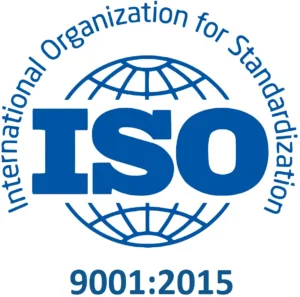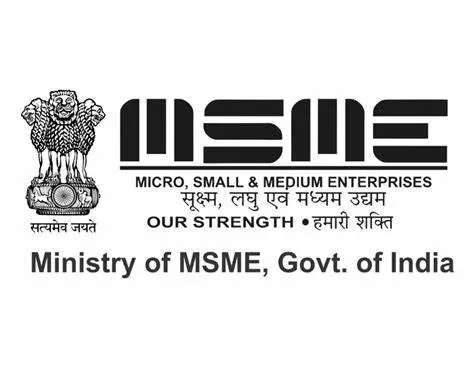Micro, Small, and Medium Enterprises (MSMEs) are the backbone of the economy, fostering innovation and employment. For startups, registering as an MSME can unlock many benefits that aid growth and sustainability. In this blog, we’ll guide you through the registration process and highlight its advantages.
How to Register Your MSME Certificate in Simple Steps
Step 1: Determine Eligibility Before you begin, ensure your business qualifies as an MSME under the revised classification based on investment and annual turnover.
Step 2: Visit the Udyam Registration Portal Go to the official Udyam Registration Portal. It’s the government’s dedicated online platform for MSME registration.
Step 3: Aadhaar Number Enter your Aadhaar number. For proprietors, the Aadhaar number must be of the proprietor, for partnerships, of the managing partner, and for companies, of the authorized signatory.
Step 4: Fill in the Owner Details Provide the owner’s name and validate the Aadhaar.
Step 5: PAN Verification Enter your PAN details. The portal will validate your PAN against government databases as its integrated with Income Tax and GSTIN systems.
Step 6: Fill in the Enterprise Details Input details about your enterprise, like the name, type, location, bank account details, and other required information.
Step 7: Additional Details Provide additional details such as the number of employees, the date you started your business, and information about previous MSME registration (if any).
Step 8: Submit and Receive the Registration Number After filling in all the details, submit the form. You will receive a registration number and a reference number for the application.
Step 9: Document Upload (If Required) In most cases, document upload is not required as the process is based on self-declaration. However, if prompted, upload the necessary documents.
Step 10: Final Submission and Certificate Review all the information, make the final submission, and you will receive your MSME certificate with a dynamic QR code.
This registration process is free of charge and does not require proof of documents at the initial stage. The details on investment and turnover will be taken automatically from government databases.
Benefits of MSME Registration for Startups
Collateral-Free Bank Loans

Collateral-free loans are a boon for MSMEs, as they do not require borrowers to pledge any assets against the loan. This is particularly beneficial for startups and small businesses that may not have significant assets to offer as security. These loans are typically provided by banks and Non-Banking Financial Companies (NBFCs) and are supported by various government schemes.
Key Features:
- No Collateral Required: MSMEs can secure loans without the need to pledge assets, which is ideal for businesses with limited resources.
- Government Schemes: Several government initiatives, like the Emergency Credit Line Guarantee Scheme (ECLGS), offer collateral-free loans to MSMEs to support them during challenging times.
- Loan Amount: The loan amount can cover a significant portion of the MSME’s outstanding credit, providing substantial financial support.
- Interest Rate and Tenure: The interest rates are capped to make them affordable, and the loans have a tenure that provides businesses with a reasonable turnaround time.
Benefits:
- Ease of Access: With no collateral requirement, the loan process is simplified, making it easier for MSMEs to access funding.
- Supports Business Growth: These loans can be used for setting up or expanding the business, aiding in growth and scalability.
- Financial Relief: They offer financial relief by providing necessary funds without the stress of losing assets in case of default.
Subsidy on Patent Registration
Patent registration can be a costly affair, especially for startups and small enterprises. Recognizing this, the government provides a subsidy to MSMEs to encourage innovation and intellectual property creation.
Key Features:
- Substantial Subsidy: MSMEs can avail themselves of a 50% subsidy on the total cost of patent registration.
- Ease of Process: The subsidy simplifies the process of securing a patent, making it more accessible and affordable for MSMEs.
- Support for Innovation: This subsidy is designed to foster a culture of innovation within the MSME sector.
Benefits:
- Reduced Costs: The financial burden of patent registration is significantly reduced, allowing MSMEs to protect their inventions without straining their finances.
- Encourages IP Creation: With the subsidy in place, MSMEs are more likely to invest in creating and protecting intellectual property.
- Competitive Advantage: Holding a patent can provide a competitive edge in the market, and the subsidy makes this advantage more attainable for MSMEs.
Overdraft Interest Rate Exemption
Overdraft Interest Rate Exemption is a financial benefit that allows registered MSMEs to enjoy a reduced interest rate on their overdraft facilities. This exemption typically amounts to a 1% reduction in the interest rate, which can provide significant savings and financial relief to businesses.
Key Features:
- 1% Interest Rate Reduction: MSMEs can benefit from a 1% exemption on the interest rate charged on overdrafts.
- Varies by Bank: The specific terms of the exemption can vary from bank to bank, and it’s based on the bank’s policies and the reported turnover of the MSME.
Benefits:
- Improved Cash Flow: The reduced interest rate can help improve the cash flow of MSMEs, which is crucial for their day-to-day operations.
- Financial Stability: It provides financial stability, especially during market downturns, by reducing the cost of borrowing.
- Supports Business Growth: By lowering the financial burden, MSMEs can invest more resources into growth and expansion activities.
Industrial Promotion Subsidy
Industrial Promotion Subsidy (IPS) is a fiscal incentive provided to micro, small, and medium enterprises to support their industrial development. This subsidy is part of various state government schemes aimed at promoting industrial growth, especially in less developed regions.
Key Features:
- Subsidy on State GST: Eligible MSMEs can receive a subsidy on 100% of the Gross State GST payable on the sale of eligible products.
- Technology Upgradation: The subsidy can be used for purchasing plant and machinery, which helps MSMEs upgrade their technology and machinery.
Benefits:
- Encourages Investment: By reducing the tax burden, the subsidy encourages investment in manufacturing and services sectors.
- Supports Regional Development: It aims to promote industrial dispersal in less developed areas, fostering regional development.
- Aids in Expansion: The subsidy supports new and expanding MSME units, aiding in their growth and capacity enhancement.
Protection against Delayed Payments
Delayed payments can severely impact the cash flow and operations of MSMEs. To address this, the MSME Samadhaan portal has been established, providing a mechanism for MSMEs to file complaints against delayed payments under the MSME Act, 2006.
Key Features:
- MSME Samadhaan Portal: A dedicated platform for MSMEs to file complaints regarding delayed payments.
- Legal Framework: The MSMED Act, 2006 mandates a maximum 45-day credit period and imposes a penalty for late payments.
Benefits:
- Timely Redressal: MSMEs can seek timely redressal of their grievances related to delayed payments.
- Interest on Overdue Payments: The buyer is liable to pay compound interest on the overdue amount at three times the bank rate notified by RBI.
- Empowerment: This protection empowers MSMEs to maintain their financial health and ensures their survival and growth
Concessions on Electricity Bills
Operational costs can be a burden for startups. MSME registration provides concessions on electricity bills, helping to reduce overhead expenses.
ISO Certification Charges Reimbursement

ISO Certification Charges Reimbursement is a supportive measure for MSMEs to encourage quality standards and enhance their competitiveness. The government provides a reimbursement for the expenses incurred in obtaining ISO 9000, ISO 14001, or HACCP certifications.
Key Features:
- Reimbursement Rate: MSMEs can be reimbursed for 75% of the certification charges.
- Maximum Limit: The reimbursement is subject to a maximum of INR 75,000.
- One-Time Offer: The reimbursement is provided as a one-time benefit to MSMEs.
Benefits:
- Reduces Financial Burden: It significantly reduces the financial burden associated with obtaining internationally recognized certifications.
- Promotes Quality: Encourages MSMEs to adopt quality management systems and environmental management systems.
- Enhances Marketability: ISO certifications can increase the marketability of MSMEs’ products and services, both domestically and internationally.
Access to Tenders
Government tenders can open new avenues for business. MSME registration gives startups special access to these tenders, providing opportunities for growth and new projects.
Reservation Policies
Certain products are reserved for exclusive manufacture by MSMEs, giving registered startups a competitive edge in the market.
Direct Tax Benefits
Startups with MSME registration can enjoy direct tax benefits in the initial years of their business, easing the tax burden and allowing more investment in growth.
These benefits collectively create a supportive ecosystem for startups, enabling them to navigate the early stages of business with greater ease and support.
Conclusion:
MSME registration stands as a pivotal step for startups aiming to carve out a successful path in the business landscape. It not only opens the door to a wealth of financial aids and subsidies but also provides a protective shield against market adversities. From collateral-free loans to subsidies on patent registration, and from overdraft interest rate exemptions to industrial promotion subsidies, the array of benefits is tailored to bolster the growth and sustainability of startups.
Moreover, the protection against delayed payments and the reimbursement of ISO certification charges underscore the government’s commitment to nurturing a conducive environment for startups. These benefits collectively ensure that startups can focus on innovation and expansion without being hindered by financial constraints or operational challenges.
In essence, MSME registration is more than just a formality; it’s a strategic move that empowers startups with the tools and support necessary to thrive in today’s competitive economy.


I really appreciate the depth of information you’ve provided here. It’s clear that you’ve put a lot of thought and effort into this post.
[…] How to Register Under Startup India […]